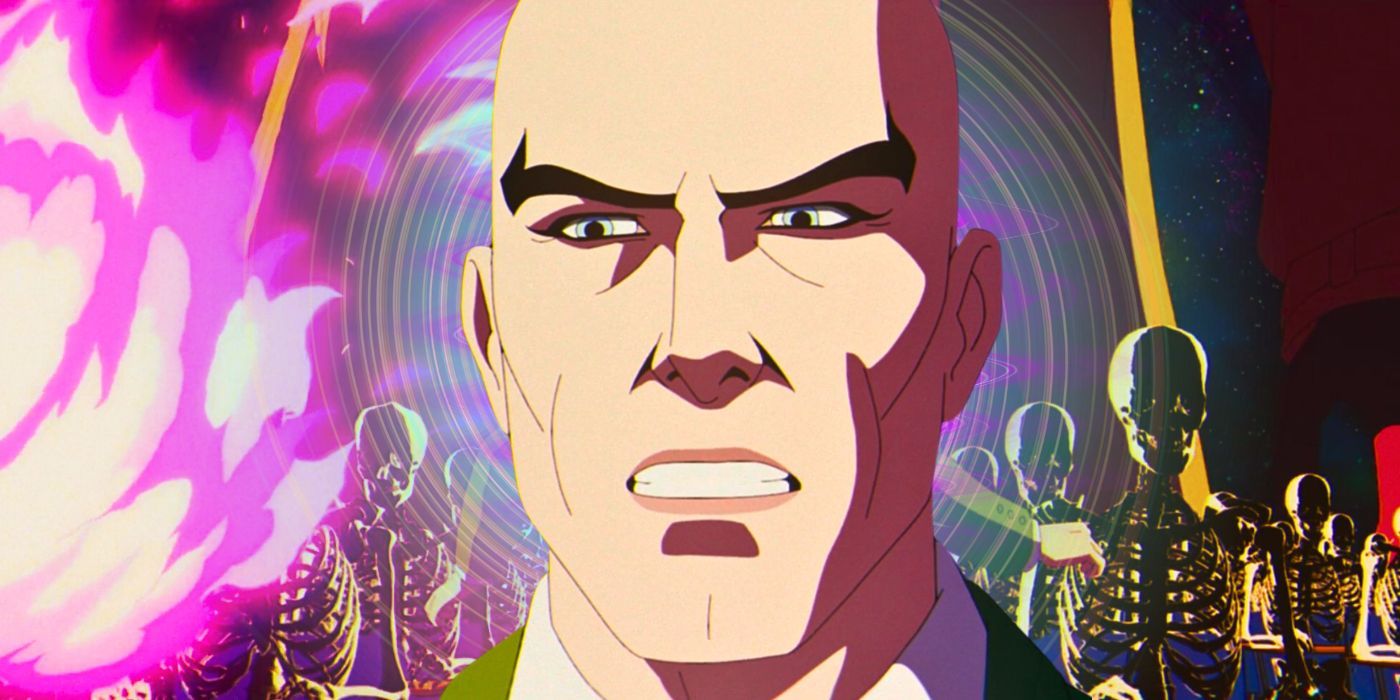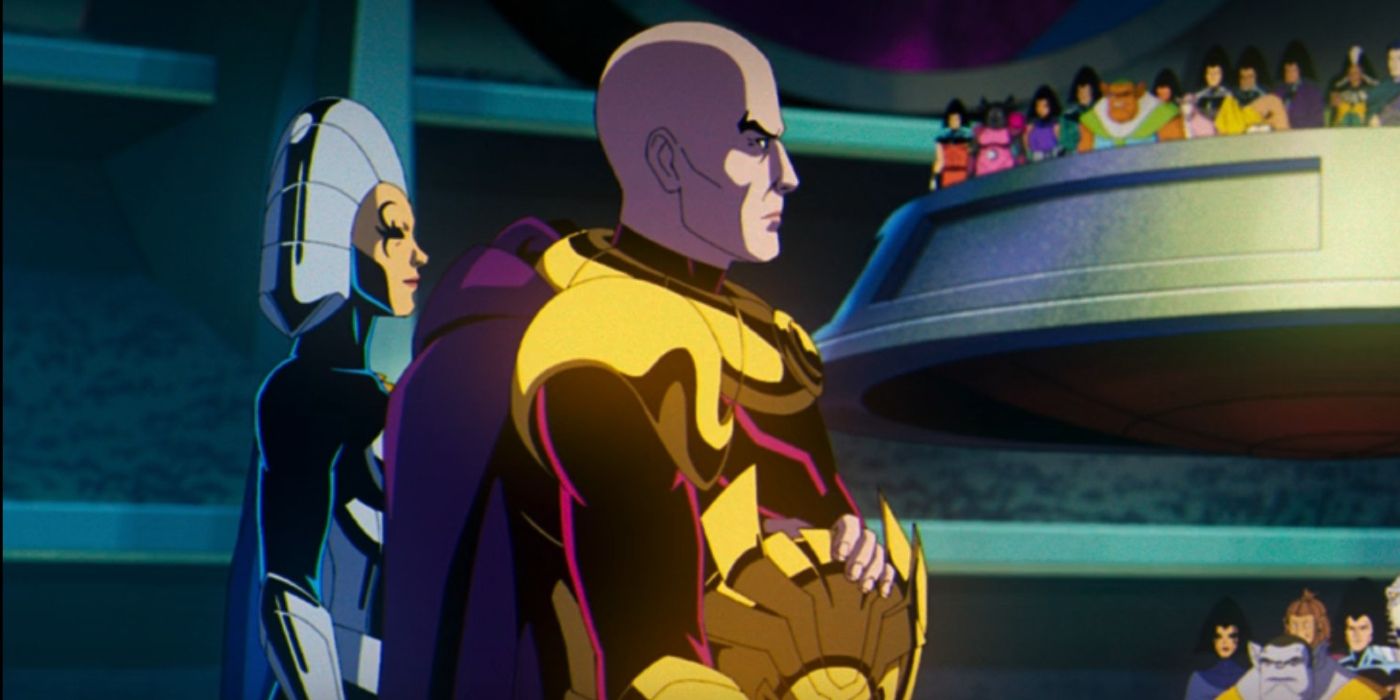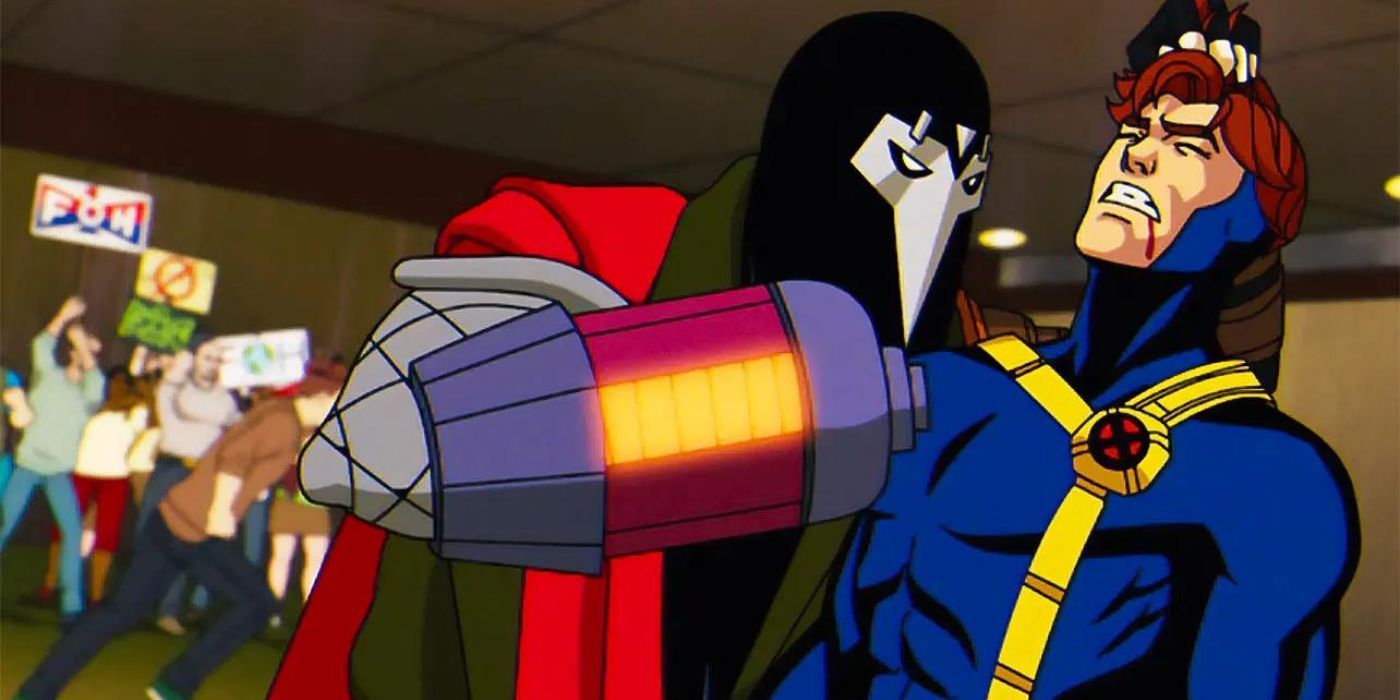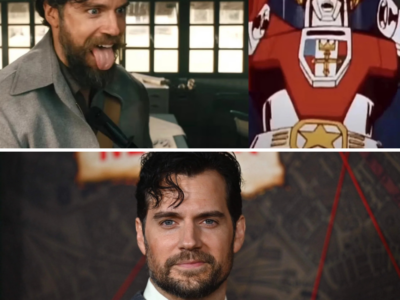Charles Xavier has strived for peace between humans and mutants but X-Men ’97 reveals that even alien races have had their anti-mutant biases.

Warning: This article contains SPOILERS for X-Men ’97
X-Men ’97 delighted fans of the Marvel animated series by bringing back Charles Xavier albeit with a vision of a divided, hate-fueled future. Among the many Easter Eggs in X-Men ’97 episode 6 “Lifedeath – Part 2”, the battle between the Kree and the Shi’ar empire reintroduced the two alien races in the world of X-Men: The Animated Series while also revealing that Xavier is alive in the X-Men ’97 continuity. While the X-Men still believe him to be dead, the telepathic professor plans on starting a new life away from Earth alongside his new romantic interest, the Shi’ar Empress Lilandra.
While Professor X initially aims to leave his memories of Earth behind and lead the Shi’ar with Lilandra instead, the mutant eventually gets cold feet after discovering the fall of Genosha and the death of Gambit. Eager to return to his home planet and guide his “Children of the Atom” once again, Professor X sacrifices his interests in favor of repairing human-mutant relations. But even before his change of heart, Xavier draws the racial ire of the other Shi’ar aliens who belittle him for his genetic makeup. Cynical audiences would be prompted to think if Xavier’s pacifist ideology ever truly worked.
X-Men ’97 Reveals Xavier’s Mutant Agenda Failed Across The Galaxy
The Shi’ar Don’t Regard Mutants As Pure Humans

Be it in the comics or the animated series, the driving force behind X-Men’s creation was Charles Xavier’s belief in mutants and humans peacefully co-existing on Earth. This was the polar opposite of arch-nemesis and occasional friend Magneto’s theory of mutants being superior to humans (or “homo-superior”in his words). But even after years of Professor X overseeing the mutant superteam and after his apparent death on Earth, X-Men ’97, unfortunately, shows anti-mutant hatred to still be on the rise. This is more than evident from how X-Men ‘97 introduces villains like X-Cutioner and depicts the tragic downfall of Genosha.
The fact that the Shi’ar empire also looks down on mutants as lesser than humans reveals that Xavier’s pacifist Utopia of coexistence needs a lot more work.
The sixth episode of X-Men ’97 revealed how this anti-mutant bias continues to exist outside Earth as well. The Shi’ar Empire disapproves of the romance between Lilandra and Xavier because of the latter’s mutant origins. The Shi’ar would have disapproved of humans as well (referring to them as “Terrans”) on account of them being not of their race. But the Shi’ar regard mutants as a lower caste, even inferior to the “Terrans”. This racism is clear in how the Shi’ar refer to Xavier as “not even a pure Terran” when compared to those who live in “the Milky Way Ghetto”.
Why Mutants Are So Hated in Marvel
The Anti-Mutant Racism Is What Makes X-Men So Political

When compared to other Marvel comics storylines, the X-Men stories have always been political in addressing real-world racism. This is why complaints of X-Men ’97 being “woke” completely miss the point of the team’s political overtones. For decades, the comics and their adaptations have shown how humans fear mutants for their genetic differences. Branding mutants like the X-Men as threats to humanity, the human government, media, and scientists in the Marvel pantheon have an aggressive bias against mutants while treating other superheroes more fairly. There’s obviously a loaded racial allegory here with the mutants standing in for all marginalized communities.
As X-Men ’97 reveals, even a “superior” alien race like the Shi’ar Empire follows suit by according a lower status to mutants. The Shi’ar might be more advanced than humans but they reflect similar prejudices. With Lilandra being a notable exception, most of the Shi’ar fear that mutants will corrupt their genetics. The anti-mutant sentiments among the Shi’ar are ironic considering they have their own superheroes in the form of the Imperial Guard, each member reflecting a unique genetic aberration in their body. This bias, much like the humans, shows again how mutants are treated worse than superheroes in Marvel.


